A common Christian prejudice expressed about Hinduism is that it caused India’s poverty. American Baptist Pastor Steven Anderson, whose channel has 134,000 subscribers, and whose website boasts that his teachings have been translated into over 115 languages, released a video in which he made this claim quite brazenly here:
“The biggest problem with India today is Hinduism. The Lord Jesus Christ, the Bible, his teachings, when they’re put into practice, they’ll cause a society to thrive and do well… but if we get these philosophies of Buddhism and Hinduism, they screw up our lives. India, by and large, is a screwed up place because of Hinduism. And that’s why there’s so much poverty…The best thing you can do to help poor people is to teach them the Bible…. The Bible promises to give food and clothing to those who serve Lord Jesus Christ. He didn’t promise to feed and clothe every Muslim, Hindu, Buddhist, or atheist. But he did promise to feed and clothe his children… Hinduism, and other false religions, is going to do nothing but drag people down.”
Pastor Steven Anderson of the Faithful Word Church, Tempe, Arizona, USA
Indeed.
History, however, tells a different story. As is well known, India came under Christian rule in the 18th century when the British and other European powers occupied it. Prior to that, in 1700 C.E., economic data indicate that India had 24.5% share of the world’s GDP, denoted by the topmost horizontal, yellow bar below:

Then an interesting thing starts to happen to this figure, the longer that Christianity (via the British) remained in control of India:
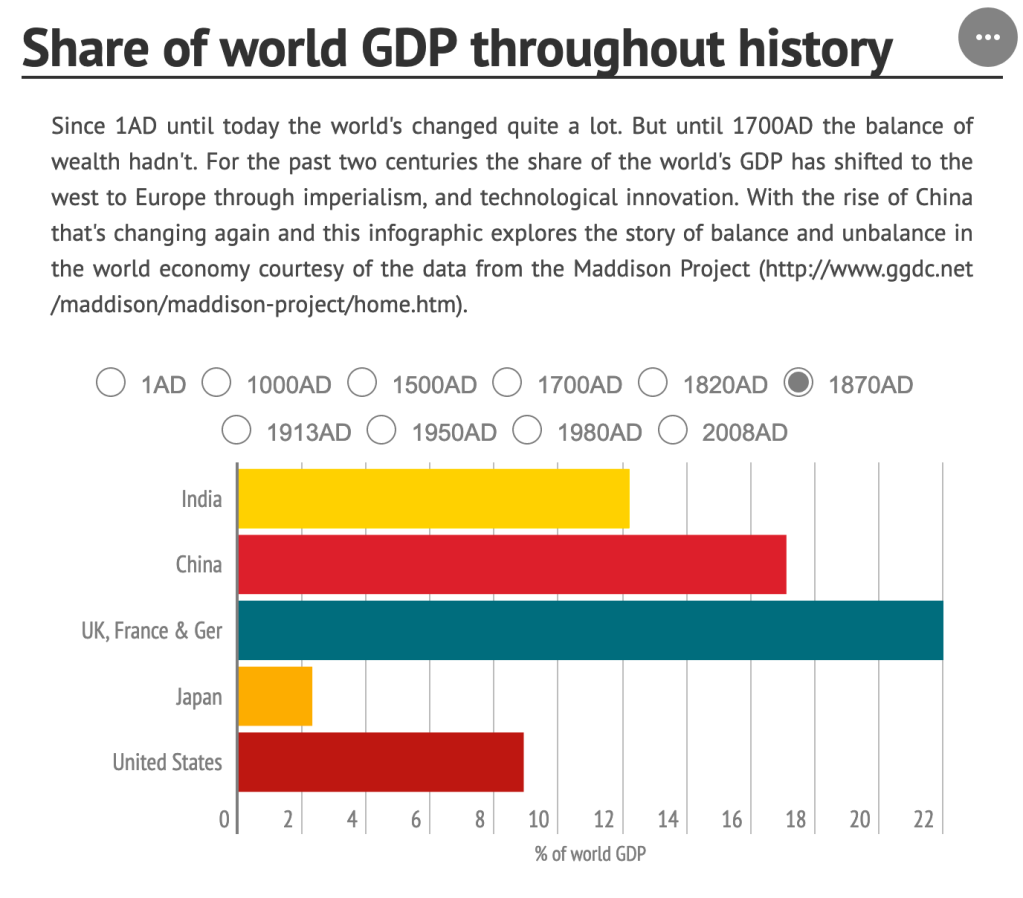

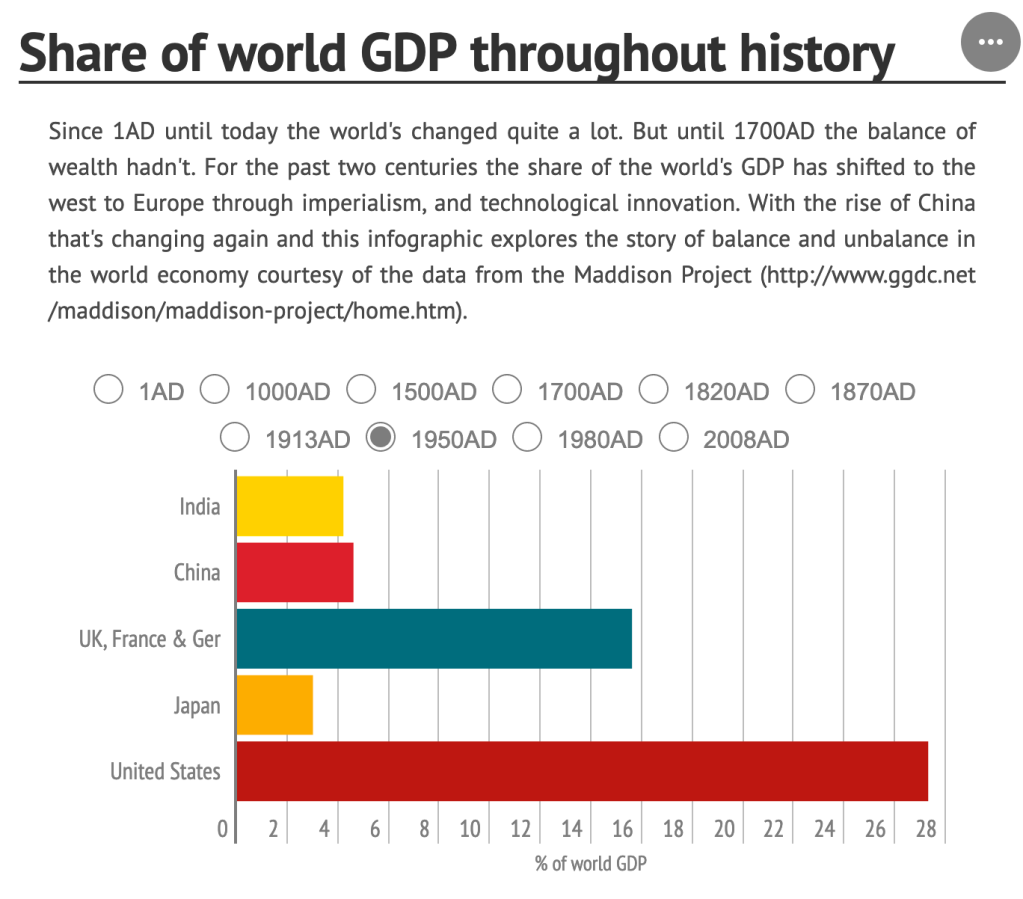
In case it was not obvious from the graphs, the data show that during Christianity’s occupation of India, India’s share of world GDP progressively shrank from 24.5% (in 1700 AD before European occupation) to 12.2% (1870 AD) to 7.5% (1913 AD) to 4.2% (in 1950 immediately after British rule of India ended).
In other words, Christianity did not bring prosperity to India or cause it “do well.” If anything, it made India poorer with respect to the rest of the world.
The reasons for this decline are not difficult to understand. Despite (or perhaps because of) Britain’s majority-Christian ethos, the British appropriated India’s lands and siphoned off India’s economic output for the benefit of the British. Economists estimate that the British extracted $44.6 trillion from India over its 200 year rule.
The technical term for this is “stealing,” which we assume is normally considered a sin in Christianity… at least when the persons being stolen from are not brown-skinned heathens.
The devastating effects of Christian looting of India was no more obvious than in the sheer numbers of Indians who died in famines occurring under British rule. The death toll was staggering – roughly 58 million Indians died while the British helped themselves to India’s crops. To put that in perspective, that is more human-beings killed by malignant British negligence than were killed by Adolf Hilter in his concentration camps.
Even this figure does not take into account the countless number of Indians who fell victim to British slavery, an institution which the British specifically protected in India, even while it banned it elsewhere:
The first batch of Biharis reached British Guiana in 1836. Within two years, Charles Anderson, a British magistrate on the island, unable to contain his anger, complained to London about the severity with which Indians were treated. Whipping, imprisonment and death were common, often through starvation….
from https://www.theguardian.com/commentisfree/2006/dec/12/theforgottenslavesfromindi
Slavery had powerful allies when legal, including the Church of England, which used slaves on its sugar plantations and lobbied against abolition in Parliament. An alliance of the Church and the City had to be appeased, and it was. By 1844, after fruitless attempts to find Chinese labour from Malacca and Africans from Sierra Leone, London decided that commerce was more important than morality. The theft of Indians resumed, and they soon began to fill the British Empire cash-crop havens of Mauritius, Fiji, Jamaica and Trinidad first, eventually followed by Natal, Malaya, Ceylon and Burma. Women were picked up to solve the problem of sex-starvation, and learnt the meaning of slavery when they were raped by British crews en route. Those who died in the squalor and disease of the ships were thrown overboard.
To this day, the government of Great Britain, which is indisputably a Christian-majority country, has yet to even offer so much as an apology.
Quite to the contrary, apologists for Christian Imperialism are far more likely to offer excuses such as:
“We gave you railroads and factories!“
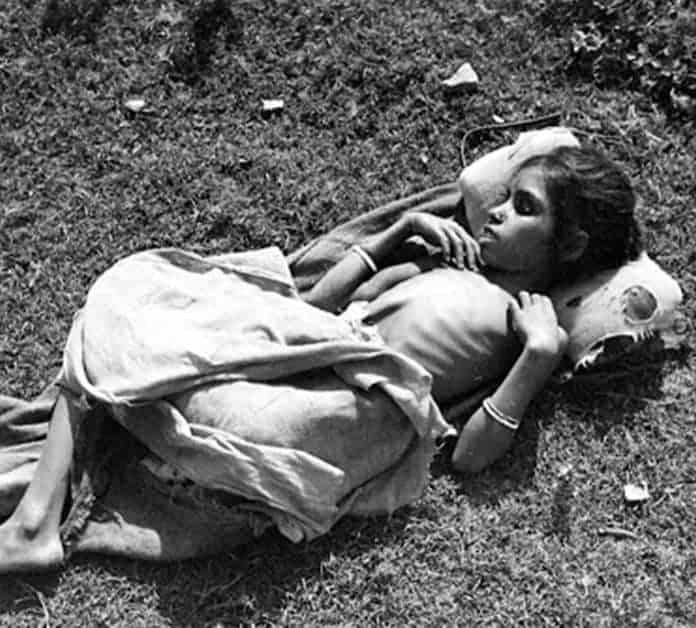
“We made India more civilized!“
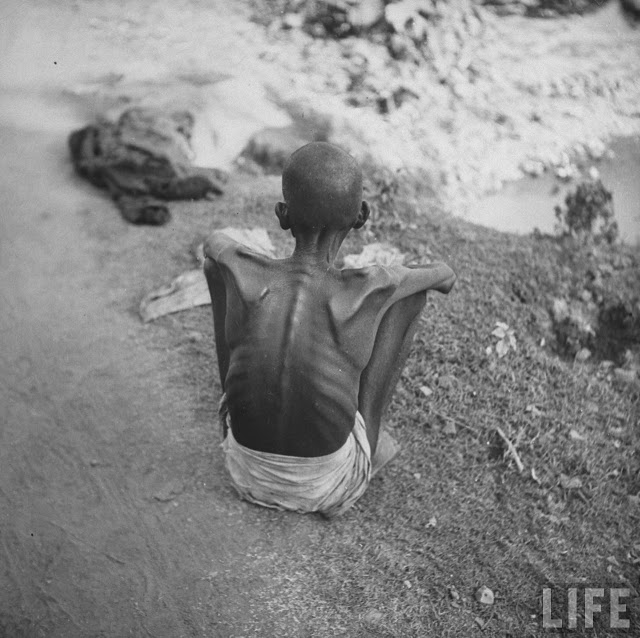
“You never would have become modern without us!“
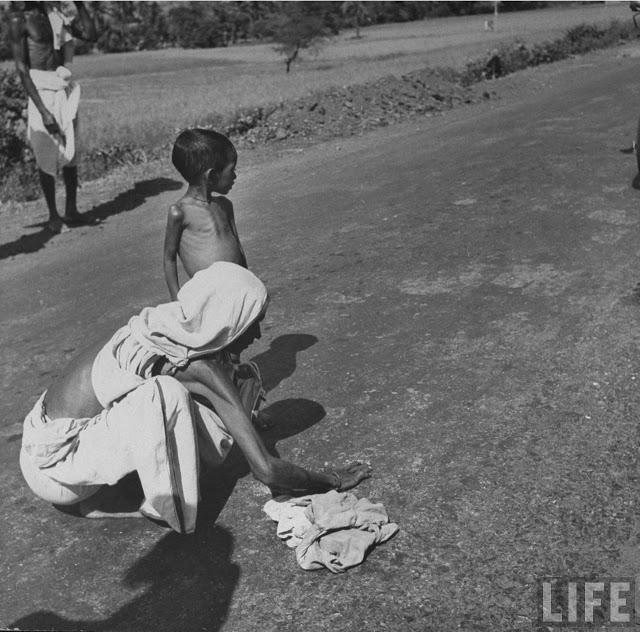
“You Indians are so ungrateful!”
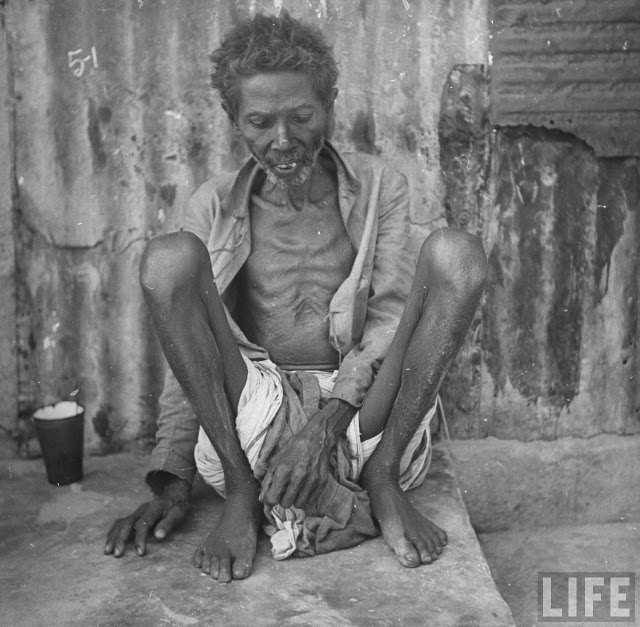
To be fair, while Britain was nominally a Christian country during the period in question, a Christian could argue that the British government conducted itself in a non-Christian way. But then again, we are unaware of any Christian organization, past or present, whose leadership explicitly condemned the British occupation and the deaths that resulted from it.
That would have required that they saw Hindus as human beings in the first place.
Contrary to Christian prejudices about Hinduism, India was a major economic power prior to European occupation. The subjugation of India under a Christian power lead not to prosperity, but to unprecedented, nation-wide plundering, enslavement, and the deaths of millions of Indian people. It took place over a 200-year period without a whisper of protest from any major Christian organization.
This is a hard and bitter pill to swallow for those Hinduphobic, Christian proselytizers who equate Christianity with righteousness.
In anticipation of the inevitable rebuttal that “those weren’t the real Christians,” we will offer in future writings an evidence-based analysis of the Bible to demonstrate that the cruelty manifested by Christian oppressors did indeed have their seeds in the Bible.
